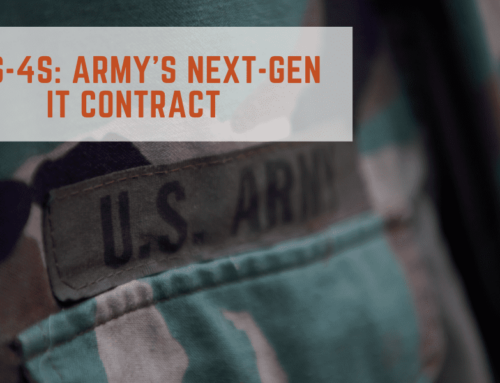There is one area of the contract life cycle where many companies still have not incorporated project management processes to increase their likelihood of success. This is the recompete capture phase – where an incumbent is preparing to bid to retain an existing contract.
Some might think that Capture processes cover this activity. But this is usually not true. Most companies don’t even envision the recompete process as a unified “project.” Instead it is a series of often disjointed activities. Usually gate reviews and ad hoc planning fail to address the range of activities that should begin long before the new program is announced.
Common Mistakes
By failing to treat the recapture stage as a specific project, many incumbents make a number of common mistakes:
- Don’t start the recapture process early enough
- Fail to properly capture the data needed for the recompete from their existing contract
- Rely too much on existing customer contacts – and fail to develop contacts who have decision making power
- Assume the new contract will be similar to the existing contract – underplaying customer change requirements
The reason for these mistakes is often the same: Complacency. The incumbent assumes its position is unshakable. They don’t put in place a clear, coherent set of actions, implemented with urgency, and regularly checked against schedule. They don’t have sufficient people from the contract as well as new innovative thinkers. In short they fail to put in place in a properly implemented project. Too often the result is, they lose a lot of their incumbent advantages and arrive at the recompete poorly prepared.
Features of Successful Recapture Projects
So what are some of the features of a successful recapture project?
- An early project initiation. Ideally the recompete project needs to start even before the customer has made their decisions about the scope and specification of the new program.
• Clearly set the activities and schedule. A good start can be wasted if there is not a clear set of activities for the project period. People will be pulled back to their ‘day jobs’ or other requirements.
• Regular reviews of progress IAW timetable. Too often there are no scheduled reviews – again leading to late activities. Some companies do have standard reviews, such as the bid / no bid decision and other “gate” reviews. But this is not the same as progress reviews against a quality project plan. - Clear action items in the areas that count. This will vary from sector to sector but generally includes items focused on the following:
– Collating and analysing data from the contract
– Rebuilding customer relationships, focused on influencers
– Understanding the next contract period and changes the customer wants
– Developing a winning solution for the next contract period
• The right people being involved. The best mix includes people from the ops team and from the bid / sales teams, plus new and innovative thinkers.
• A clear objective and end point. The project should aim to hand over to the bid project itself a winning proposal plan. The plan needs to reflect a clear understanding of the customer needs and include an outline of the solution and pricing.
Treating your pre-recompete preparations as a recapture project will give discipline to the effort. It will also create a repeatable set of actions for your recompete preparation that the business can learn from, improve, and repeat for future recompetes. Ultimately it will lead to more recompete wins.
Editor’s Note: Nigel Thacker from the UK is probably the most knowledgeable person in the world on recompetes. He is a business partner of OCI.
If you have any questions or would like to know more, please contact us here.





Leave A Comment